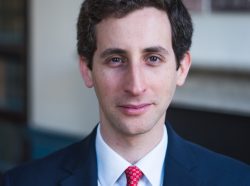The COVID-19 pandemic is obviously relevant to those who act in the area of Inquests and Inquiries. There will inevitably be a dramatic rise in the workload of coroners and, ultimately, in the number of full inquests being heard. Due to arguments concerning the state’s role in the handling of the pandemic, or of medical provisions and other more systemic issues, there may also be a public inquiry. This note is intended to identify the most immediate issues for practitioners.
Key Documents
The following important guidance documents have been produced by the Chief Coroner:
- Guidance No 34: Chief Coroner’s Guidance for coroners on Covid-19. Read here.
- Guidance No. 35: Hearings during the pandemic. Read here.
- Guidance No 36: Summary of the Coronavirus Act 2020, provisions relevant to coroners. Read here.
- Guidance No 37: COVID-19 Deaths and Possible Exposure in the Workplace. Read here.
There is also new national guidance with regard to the recording of deaths:
- Guidance for doctors completing medical certificates of cause of death in England and Wales. Read here.
- NHS Guidance: Coronavirus Act – excess death provisions: information and guidance for medical practitioners. Read here.
Reporting deaths to the Coroner
The Chief Coroner issued his first Covid-19 guidance on 26 March 2020. Amongst other matters, this made clear that he considers that:
- COVID-19 is an acceptable direct or underlying cause of death for the purposes of completing the Medical Certificate of Cause of Death (MCCD).
and, importantly
- COVID-19 as cause of death (or contributory cause) is not a reason on its own to refer a death to a coroner under the CJA 2009.
The Chief Coroner reiterated that COVID-19 is a naturally occurring disease and therefore is capable of being a natural cause of death.
In his further guidance of 30 March 2020 he repeated:
“It is worth restating here that although COVID-19 is a notifiable disease under the Health Protection (Notification) Regulations 2010 that does not mean a report of death to a coroner is required by virtue of its notifiable status (the notification is to Public Health England), and there will often be no reason for deaths caused by this disease to be referred to a coroner”.
However, the various circumstances set out in the Notification of Death Regulations 2019 will, of course, still apply. Deaths will therefore be notified where, for example, the registered medical practitioner suspects that the death was due to:
- Neglect
- The person undergoing a treatment or procedure of a medical or similar nature
- A disease attributable to any employment held by the person
- Deaths in custody or state detention
Furthermore, a death may be “unnatural” (and therefore also notifiable and engage the coroner’s duty to conduct an investigation) where it has resulted from the effects of a naturally occurring condition or disease process but where some human error contributed to death: see R (Touche) v Inner London North Coroner [2001] QB 1206.
As the Chief Coroner has explained in his most recent guidance:
“Accordingly, a death which is believed to be due to COVID-19 may require a coroner’s investigation and inquest in some circumstances. For instance, if there were reason to suspect that some human failure contributed to the person being infected with the virus, an investigation and inquest may be required. If the coroner decides to open an investigation, then he or she may need to consider whether any failures of precautions in a particular workplace caused the deceased to contract the virus and so contributed to death. Also, if there were reason to suspect that some failure of clinical care of the person in their final illness contributed to death, it may be necessary to have an inquest and consider the clinical care. If the person died in state detention (e.g. in prison or secure mental health ward), an inquest would have to take place.”
There has already been threatened litigation against an NHS Trust which produced guidance which, according to the Claimants, “gave the misleading impression that it is optional to include Covid-19 as a cause of death where it has been proven or strongly suspected” and suggested that doctors should only involve the coroner “in exceptional circumstances”. That litigation appears to have been resolved by the Trust referring staff to the national guidance.
Inquests with Juries
At the early stage of the pandemic, on 5 March 2020, COVID-19 was added to the list of notifiable diseases by adding it to the Health Protection (Notification) Regulations 2010. The effect of this was that all GPs were required to report cases to public health England.
A side-effect of this amendment is that where a death is referred to a coroner in such circumstances the CJA 2009 requires an inquest with a jury.
Recognising the impact of this requirement on the workload of coroners and Local Authorities, section 30 of the Coronavirus Act 2020 (which came into force on 25 March 2020) modified the provision so that COVID-19 is not a notifiable disease for the purpose of the 2009 Act.
The Explanatory Notes to the Coronavirus Act 2020 explain that:
Although the inquests could be adjourned until the pandemic has passed, this would deprive bereaved families of swift closure and would, in any event, simply delay resource pressure for the future.
The Act modifies the existing legislation to disapply the requirement that coroners must conduct any inquest with a jury where they have reason to suspect the death was caused by COVID-19. For Northern Ireland, the Act makes corresponding provision, including in relation to inquests into a death in prison from natural illness.
Of course, a coroner still retains the discretion to hold a jury inquest where they consider that there is sufficient reason to do so, under section 7(3) of the Coroners and Justice Act 2009.
The Hearings
The issue of hearings during the pandemic is being kept under constant review by the Chief Coroner. However, the following is a summary of the current position:
- As is well known, Rule 11 of the Coroners (Inquests) Rules 2013 provide that the inquest and pre-inquest hearings must be held in public.
- There are no current provisions for ‘virtual’ hearings. Although the Coronavirus Act 2020 has made widened provisions for live links in criminal proceedings (where even the judge may take part thought a live audio link or video link), these have not been extended to inquests. This means that all hearings require the physical presence of a coroner.
- The requirement for the physical presence of a coroner means that the Courts are open, but only for “urgent or essential court business”.
- Provision can be made for the parties (but not the coroner) to attend by phone or other link. This was relatively common in the pre-Coronavirus days for hearings dealing with case management issues.
Public Inquiry
The COVID-19 pandemic has already had a knock on effect on existing enquiries. The Brook House Inquiry, which is looking into issues concerning mistreatment of immigration detainees following a Panorama broadcast, has broken new ground by formally opening the Inquiry via video and has announced that it is prioritising the document review stage of the Inquiry for the time-being. The Grenfell Tower Inquiry announced on 16 March 2020 that it was pausing all live hearings until further notice.
There will no doubt be calls for a public inquiry into aspects of the COVID-19 pandemic. The following is a brief refresher on the law pertaining to public inquiries:
- Both Article 2 and Article 3 ECHR contain procedural obligations on the state to carry out an “effective official investigation” where there is credible evidence of an infringement.
- Acts or omissions of the authorities in the field of healthcare policy may in certain circumstances engage responsibility under Article 2 ECHR: see, for example, Byrzykowski v Poland (2006) 46 EHRR 32.
- In the case of deaths, as Lord Bingham observed in R (Amin) v Secretary of State for the Home Department [2004] 1 AC 653 “a properly conducted inquest can discharge the state’s investigative obligation”. Indeed, the Inquest into the death of Ella Kissi-Debrah which will be taking place later this year is a good example of an Inquest looking into wider public health issues, in that case air pollution. But, of course, the sheer number of inquests could make a public inquiry a more practical means to satisfy this obligation. Moreover, the Chief Coroner has urged caution against using an inquest to address concerns about high-level government policy (following cases such as R(Smith) v Oxfordshire Asst. Deputy Coroner [2011] 1 AC 1, which concerned sufficiency of equipment for the army). In his Guidance Note 37 he states:
“an inquest would not be a satisfactory means of deciding whether adequate general policies and arrangements were in place for provision of personal protective equipment (PPE) to healthcare workers in the country or a part of it.”
The Chief Coroner has suggested that if a coroner considers that a proper investigation onto the death requires that evidence or material be obtained in relation to matters of policy and resourcing, he or she “may choose to suspend the investigation until it becomes clear how such enquiries can best be pursued”. This appears to be an indication that, at least as far as the Chief Coroner is concerned, a public inquiry of some sort is on the horizon.
- There may be arguments that a public inquiry is required in any event to address issues concerning Article 3 mistreatment issues or cases of near death: see for example, R (D) v Secretary of State for the Home Department [2006] EWCA Civ 143.
- The purpose of an investigation is (per Sedley LJ in R (Amin) v SSHD [2004] 1 AC 653 at §31:
“to ensure so far as possible that the full facts are brought to light; that culpable and discreditable conduct is exposed and brought to public notice; that suspicion of deliberate wrongdoing (if unjustified) is allayed; that dangerous practices and procedures are rectified; and that those who have lost their relative [in an Article 2 case] may at least have the satisfaction of knowing that lessons learned from his death may save the lives of others.”
- The requirements of the investigation are, broadly as follows: (1) The investigation must be independent. (2) The investigation must be effective. (3) The investigation must be reasonably prompt. (4) There must be a sufficient element of public scrutiny. (5) The next-of-kin (in an Article 2 case) must be involved to an appropriate extent. See Jordan v United Kingdom 37 EHRR 52.
- Calls for an Inquiry to take place immediately may be premature, but the ECHR’s observations in Byrzykowski (at §117) may be important in respect of how ‘prompt’ the Inquiry should be:
“Lastly, the Court observes that, apart from the concern for the respect of the rights inherent in Art.2 of the Convention in each individual case, more general considerations also call for a prompt examination of cases concerning death in a hospital setting. This is because the knowledge of facts and possible errors committed in the course of medical care should be established promptly in order to be disseminated to the medical staff of the institution concerned so as to prevent the repetition of similar errors and thereby contribute to the safety of users of all health services.”
- Finally, a public inquiry doesn’t need to be an inquiry under the Inquiries Act 2005. However, unless there is a statutory inquiry, there will inevitably be arguments concerning, for example, the need for statutory powers to compel evidence.
Julian Blake acts in a wide range of inquests and inquires. He is currently leading counsel to the Home Office in the Brook House Inquiry, counsel to a government department in the Grenfell Inquiry and counsel for Lewisham Borough Council in the inquest into the death of Ella Kissi-Debrah mentioned in this article.








